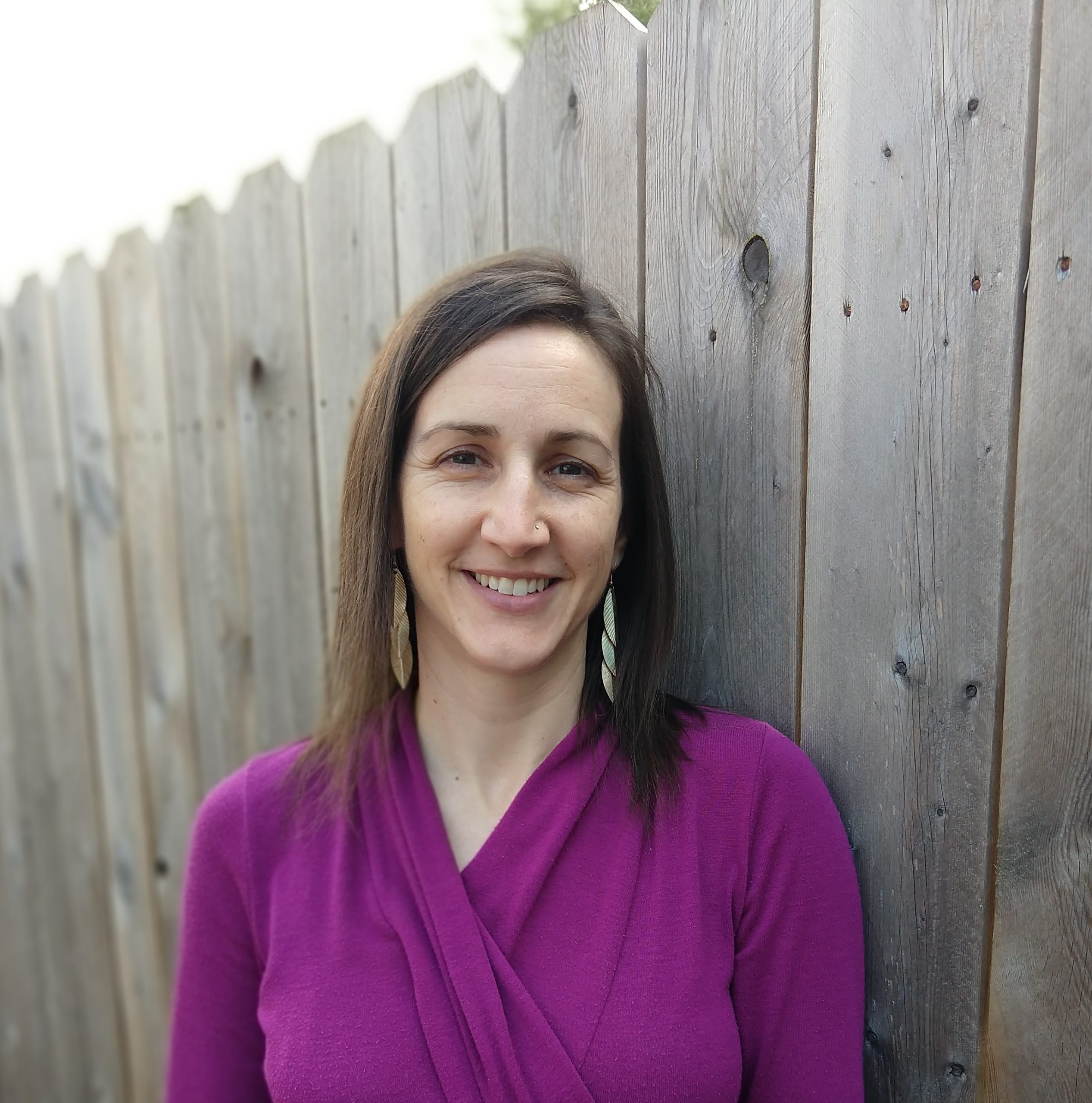 This post is part of our Journey Forward series. We’ve invited folks from across Mennonite Church USA to reflect on our Journey Forward and consider how they’ve seen Renewed Commitments at work in their lives, their congregation or community. If you’d like to contribute to this series by highlighting stories that bring our shared values to life, email JenniferC@MennoniteUSA.org.
This post is part of our Journey Forward series. We’ve invited folks from across Mennonite Church USA to reflect on our Journey Forward and consider how they’ve seen Renewed Commitments at work in their lives, their congregation or community. If you’d like to contribute to this series by highlighting stories that bring our shared values to life, email JenniferC@MennoniteUSA.org.
Mindy Nolt is associate pastor at Blossom Hill Mennonite Church in Lancaster, Pennsylvania. She is also a singer-songwriter and performs occasionally with her husband Jared Hankee. They live in Lancaster city with their three young children.
Because I felt beloved by the Anabaptist family and community that raised me, I experienced at least some degree of freedom to question beliefs and practices. From that place of safety, I began to question patriarchy at age 11, though I had no idea there was a word for it. In a Bible class at the Mennonite school I attended, I pointed out some scripture references that I didn’t believe were being interpreted correctly. I expressed that they didn’t make sense to me as a girl, especially if God is a God of love. While the teacher didn’t shut me down, my memory tells me that my resistance seemed to be a joke to the teacher and some of the boys. Even so, raising my voice and telling my truth in that situation was an empowering shift for me.
I continued to advocate for girls and women in all spheres. Still, some years later, I found myself defending some people’s exclusive use of the word “Father” for God in a conversation with a friend. And yet, thanks to my friend’s willingness to engage and challenge me, something shifted. I became more sensitive to and aware of the use of language in the religious sphere to suppress women.
In another conversation a couple of years later, I defended the Mennonite Church’s stance on homosexuality as sin. I could tell my friend was frustrated with me, but she respectfully asked the question, “Do you know anyone who is gay?” I was silent and could only think of a distant relative about whom I knew very little. It felt like another shift that moved me toward greater attentiveness to people’s stories and pain.
A few years later, I was sharing some theological insights I had about Jesus with someone I considered to be a very close friend. The insights were unconventional, but I felt strongly it was something worth sharing, even though I knew we saw things differently regarding faith. His response was, “That’s the dumbest thing I’ve ever heard!” Again, something shifted. Despite being crushed momentarily, my faith grew deeper, because I had been honest and vulnerable.
 Later, in seminary, there were two instances in which I verbalized assumptions about my black colleagues. Moments after each time, I recognized my ignorance and racist assumptions. That I even caught it tells me that anti-racism training was essential to my growth. That I made the assumptions tells me that there was, and is still, a lot of work I need to do to understand white privilege. These moments were shifts that set me on a path to de-center my experience as a white Anabaptist woman.
Later, in seminary, there were two instances in which I verbalized assumptions about my black colleagues. Moments after each time, I recognized my ignorance and racist assumptions. That I even caught it tells me that anti-racism training was essential to my growth. That I made the assumptions tells me that there was, and is still, a lot of work I need to do to understand white privilege. These moments were shifts that set me on a path to de-center my experience as a white Anabaptist woman.
I don’t have a timeline for you to reflect how many days, months or years passed between each of these experiences. I don’t even remember. Besides, it might give the visual of a linear path and that maybe I’ve arrived. Well, I haven’t arrived. And yet my circle has widened like nothing I ever imagined as a child or teen.
I have learned that my original Anabaptist community and my current one are not so central in the journey forward. They have been both a lens and a commitment, but they were never meant to be a wall or blinders to the rest of the world.
This is my hope for the church going forward — that we recognize where we’ve come from, honor where others have come from, and seek “to tell the truth and repent” as the Journey Forward document states.
Some of us are charged with telling the truth when we have been too silent (or silenced) and others are charged with taking a posture of attentiveness and repentance (metanoia, a shift, a change of heart). Most of us need some of both. I know I need to become a better listener and observer, especially to those who have not been given the time or space to speak before. At the same time, I have had to discover my own voice, to take a step forward and to speak louder.
I can see how both the truth-telling and the repentance in each of my experiences moved me toward this widening circle that started with (but does not end with) my connection to my faith community.
I find hope in that the renewed commitments are declared a living document, and in that its co-creators open the statement with the words belovedness and mystery. My hope is that we put these commitments on paper, not as a container for our beliefs, but as an evolving, breathing and living document that increasingly reflects the beloved and mysterious body that we already are and hope to more fully be. I hope we continue to hold it as living. Our bodies will change, our minds will change, our earth will change, our demographic will change … and we can be sure the Divine spirit of belovedness and mystery will forever be moving us forward toward greater truth-telling and deeper shifts of the heart.
___________________________________________________________________
All congregations are invited to use Journey Forward’s “Pathways” study guide. Find it and all Journey Forward updates here.
Your financial support of MC USA helps us equip leaders and tell stories of Anabaptist faith in action across the church. Donate to MC USA here.

